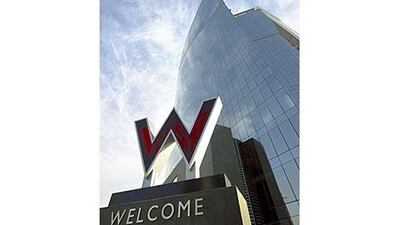Ask any globe-trotting banker whether he prefers doing business in Qatar or Dubai and the chances are he will talk about fully booked aeroplanes. To be precise: he will say that you cannot book the Thursday afternoon flight from Doha to Dubai at the last minute.
"You have to book those flights weeks and sometimes months ahead of time," says a Dubai-based economist, who did not want to be named. He visits Qatar regularly and says "everyone tries to get back to Dubai as fast as possible". Recently, Qatar scrapped the visa-on-arrival scheme for nationals from 33 countries in a move that threatened to make life difficult for the army of briefcase bankers who regularly descend on the prosperous country. It meant they would have to sort their visas out before they set off, which would be a much more time-consuming process.
Since then, the outcry from foreign embassies and businesses fearing tedious paperwork and time-consuming delays has apparently caused the foreign ministry to reconsider. Whatever the outcome, the possible reintroduction of visas has sparked a new round in the debate over Dubai versus Qatar. Which is the better place to do business? How do the two cities compare for modern-day business nomads? No question, Dubai has far more hotels. But Qatar boasts a W Hotel, considered one of the world's trendiest boutique hotels.
Qatar has grown its economy at an unprecedented speed. GDP grew by a factor of 12 times over the past 15 years. This year, there is a good chance that its economy will grow by up to 15 per cent on the back of ballooning income from liquefied natural gas. Qatar's total oil and gas export earnings are expected to double to US$80.8bn (Dh296.78bn) next year from last year. Income from oil and gas contributes about two thirds of its budget. At a per-capita income of about $85,000, Qataris have even overtaken the Swiss as the world's richest people.
Dubai, by contrast, may see only anaemic growth at best or even slight contraction this year, according to the IMF. It is also quickly running out of oil. There has been little news about its oil find off the coast off Dubai in February. It also has about $115bn of debt on its books and has been forced to restructure one of its largest conglomerates. But the widening wealth gap could also pose a serious drawback for richer neighbours. Hassan el Nahas, who heads the Dutch bank ABN Amro's private banking in the Middle East, calls it the "client fatigue" syndrome. Because many people are courting Qatar, influential people in both places may feel overwhelmed at times.
"Everybody is jumping on Qatar, like Abu Dhabi," Mr el Nahas says. "That results in client fatigue. They will meet you out of courtesy but they are a bit tired of being courted all the time." He predicts this lopsided arrangement will run out of steam in a couple of years. "All of that will balance out and there will be less of a frenzy to go after new clients in Qatar." When it comes to commercial property costs, monthly rents at the Dubai International Financial Centre (DIFC) are the second-most expensive in the MENA region. But that did not stop ABN Amro from moving into the DIFC last month.
"Qatar would have been cheaper," says Mr el Nahas. However, he says it is easier to send bankers to meet Qatar clients occasionally, rather than taking the reverse route. "Qatar is fundamentally a much smaller market and more conservative," Mr el Nahas says. "If you can get access to four people within the 'who's who', which are very closely knit groups, you are set. Meanwhile, in Dubai, they expect you to meet them on a monthly basis."
Granted, Qatar, and the Qatar Financial Centre, are playing in the top league and have made large strides to position the nation as a regional business and finance centre. Instead of competing with Dubai in general terms, the Qatar Financial Centre should have specialised in one industry, for example, funds or insurance," say industry experts. According to the Forbes 2009 Tax Misery and Reform Index, Qatar has the world's friendliest tax environment. Last year, the Qatar Financial Markets Authority developed a code of corporate governance for listed and public companies in Qatar, defining core corporate governance principles and best practices.
But most of its moves follow those of Dubai, experts say. "Dubai is clearly leading the way. There are enough indications that Dubai is the regional financial hub," John Sfakianakis, the chief economist at Banque Saudi Fransi in Riyadh, said recently. "Qatar was the one following and trying to catch up but could not because Dubai was so fast." In terms of lifestyle, no city in the region can match Dubai, most visitors and residents alike say.
As far as innovative development is concerned, Doha makes a good case for the top slot. Building artificial islands was the brainchild of Dubai or, to be precise, its developer Nakheel. Qatar followed with its own version, the Pearl. Today, prices are down in both. But the "Pearl is still nicer", says the economist. "It is far less crammed." However, both cities face challenges when it comes to attracting major, big-ticket sports events.
Qatar bid for the 2016 Olympic Games, but did not win them. At the time, the International Olympic Committee, in a preliminary evaluation, ranked Doha ahead of Rio de Janeiro. But Doha's proposal to hold the Olympics in October (for weather reasons) apparently did not go down well with the organisers. Now both Doha and Dubai are competing for the 2020 Olympic Games and Doha has even applied for the 2020 FIFA World Cup.
With average maximum temperatures of more than 40°C, both cities need to convince the world that they can host the world's biggest sports events, as well as entertain the globe's leading business operators. @Email:uharnischfeger@thenational.ae

